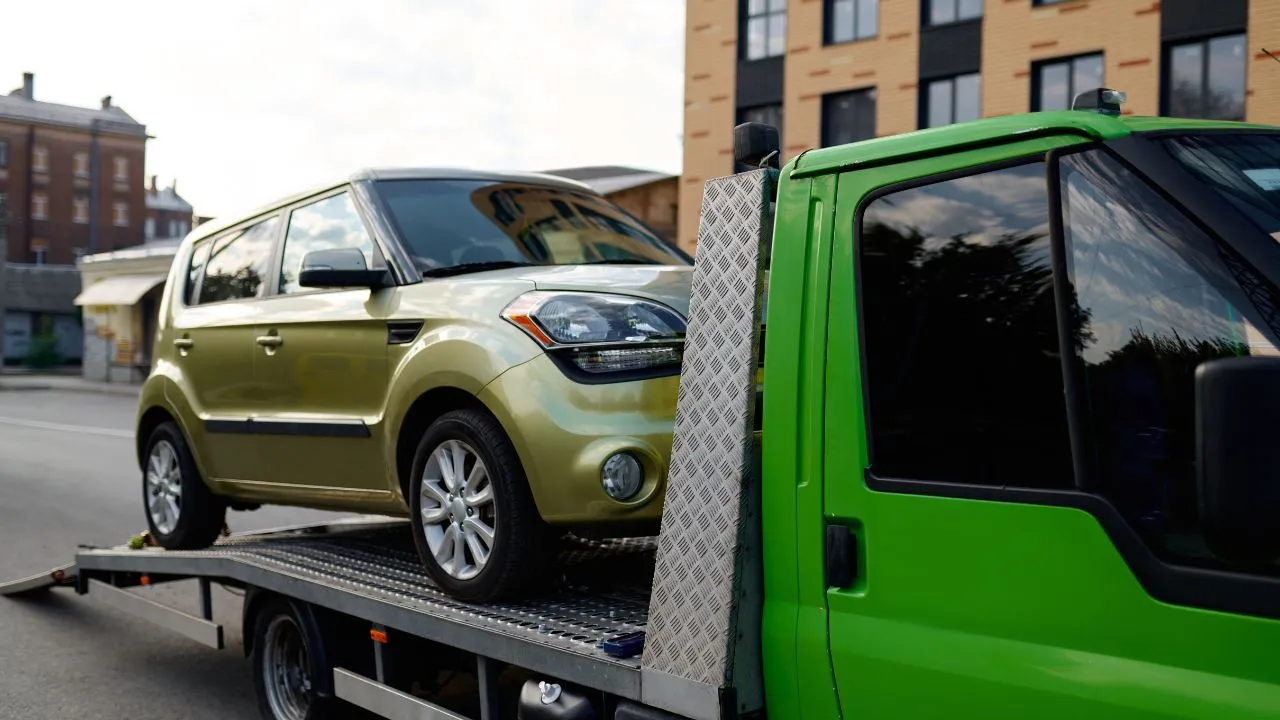If your stolen car is found after the insurance payment, it becomes the property of the insurance company.
You might have the option to repurchase it, but the cost will probably exceed the original purchase price.
The following steps occur when a car, once stolen, gets retrieved post-insurance payout:
- Report the recovery of your car to your insurance company: They’ll need to assess the vehicle for potential damages.
- The insurance company will decide whether to keep or sell the car: either keep the vehicle for repair or sell it. An extensive amount of damage might lead them to sell, whereas slight damage could result in repairs and retention.
- If the insurance company decides to sell the car, you may be able to buy it back: Typically, the price set by the insurance company is more than the original price you paid. The reason for this price increase stems from their need to recover the insurance claim expenses and repair costs.
- If you decide to buy the car back, you will need to pay the insurance company the agreed-upon price: After payment, you reclaim ownership.
Keep in mind that the actual procedure when a stolen car is retrieved after an insurance payout can vary.
It depends on the specific insurance company and the unique circumstances surrounding the theft.
For accurate information, it’s best to directly contact your insurance company and inquire about their particular policies and procedures.
What happens to the settlement agreement when a stolen car is found?
The settlement agreement is a legal contract that outlines the specific terms and conditions for your insurance claim payment.
Even if your stolen vehicle is recovered after the agreement has been signed and payment has been made, the agreement still remains legally binding.
However, changes or alterations to the agreement may be necessary depending on the situation.
For example, if you decide to buy back your recovered vehicle from the insurance company, you may need to repay some or all of the claim payment as per the agreement.
On the other hand, if you don’t want to keep the recovered vehicle, you may need to sign a release form that transfers ownership and title of the vehicle to the insurance company, as specified in the agreement.
Are there any penalties or consequences for the person who settled for a stolen car?
A person who negotiates a settlement for a stolen vehicle faces no penalties or repercussions, provided they exhibit good faith and adhere strictly to the settlement agreement’s stipulations. The individual who negotiates the settlement for the stolen vehicle bears no blame for the theft or damage brought about by the perpetrators. They hold no responsibility for potential legal complaints or conflicts resulting from the vehicle’s retrieval.
On the contrary, if an individual involved in the settlement for a stolen vehicle conducts themselves deceitfully or in a fraudulent manner, like concealing or eliminating evidence, uttering false testimonies, or conspiring with the culprits, they might confront severe repercussions or penalties. They could be obliged to refund the claim payment, compensate for further damages, confront criminal charges, or forfeit their insurance protection. The insurance firm, law enforcement, or the vehicle’s initial owner might also instigate legal proceedings against them.
Do insurance companies investigate further when a stolen car is recovered after settlement?
Yes, insurance companies may investigate further when a stolen car is recovered after settlement.
This is because they want to verify the legitimacy of the claim and prevent fraud. Insurance companies may also want to assess the condition and value of the recovered car and decide what to do with it.
Some of the things that insurance companies may investigate when a stolen car is recovered after settlement are:
- The circumstances of the theft and recovery
- The ownership and title of the car
- The claim payment and settlement agreement
- The involvement of fraud or dishonesty
Are there any legal implications for the person who settled for a stolen car that is later recovered?
Yes, there are potential legal implications for the person who settled for a stolen car that is later recovered.
When you file an insurance claim for a stolen car, you typically transfer ownership of the car to the insurance company. If the car is eventually found, the insurance company becomes the new owner.
Keeping the car after receiving payment from the insurance company can lead to allegations of insurance fraud, a serious crime that carries fines, jail time, or both.
Occasionally, the insurance company might permit you to repurchase the car at a negotiated price.
Nevertheless, this option is not always available, so it is crucial to discuss your possibilities with your insurance company if your stolen car is recovered.





